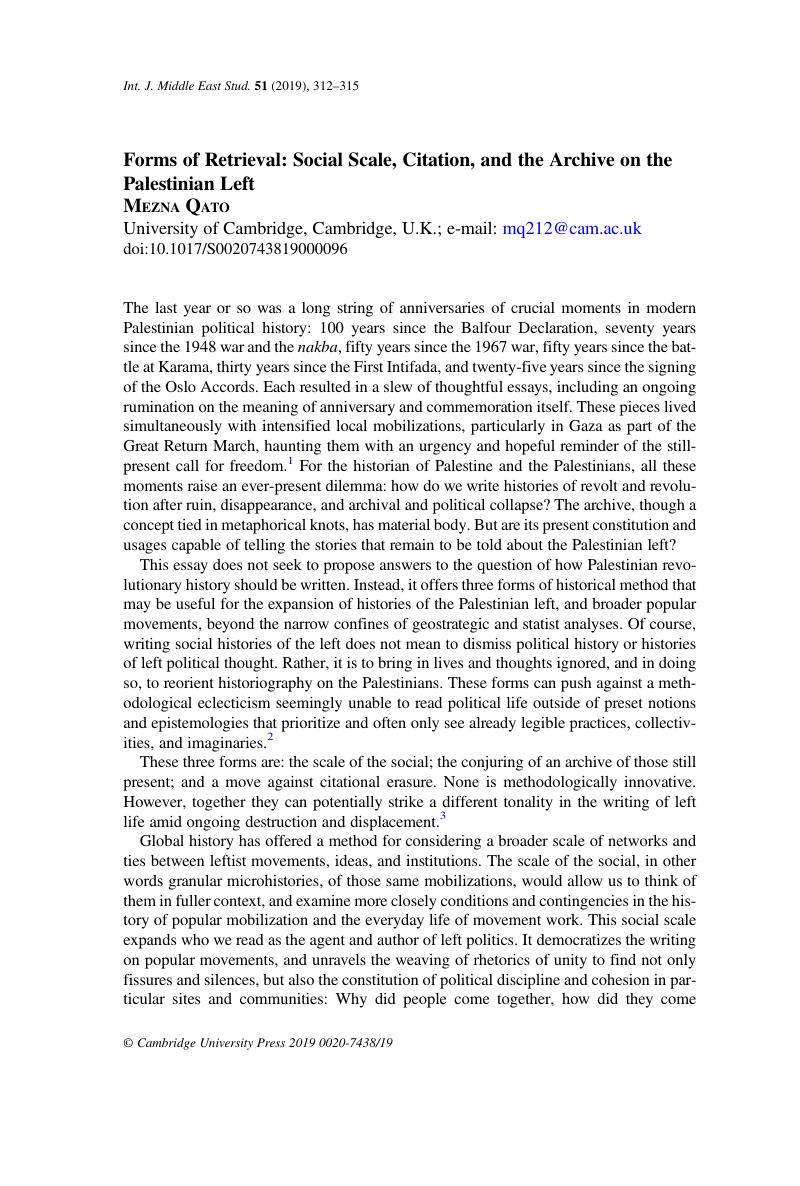Article contents
Forms of Retrieval: Social Scale, Citation, and the Archive on the Palestinian Left
Published online by Cambridge University Press: 10 May 2019
Abstract

- Type
- Roundtable
- Information
- Copyright
- Copyright © Cambridge University Press 2019
References
NOTES
1 Abusalim, Jehad, “The Great March of Return: An Organizer's Perspective,” Journal of Palestine Studies 47 (2018): 90–100CrossRefGoogle Scholar.
2 For one meditation on what a historiography of the everyday can do, see Doumani, Beshara and Winder, Alex, “1948 and Its Shadows,” Journal of Palestine Studies 48 (2019): 7–15CrossRefGoogle Scholar.
3 Anthropologists have been considering these questions for some time. See, e.g., Sayigh, Rosemary, The Palestinians: From Peasants to Revolutionaries (London: Zed Books, 1979)Google Scholar.
4 One singular attempt to write Palestinian revolutionary history through archival retrieval and oral history is the extraordinary online portal built by Karma Nabulsi and Abdel Razzaq Takriti. See The Palestinian Revolution, accessed 20 December 2018, http://learnpalestine.politics.ox.ac.uk.
5 Indeed, the Arab world is currently witnessing a small flourishing of alternative archives of the Arab, and Palestinian, left.
6 This is certainly not an exceptional condition. See Traverso, Enzo, Left-Wing Melancholia: Marxism, History, and Memory (New York: Columbia University Press, 2017)Google Scholar.
- 11
- Cited by


